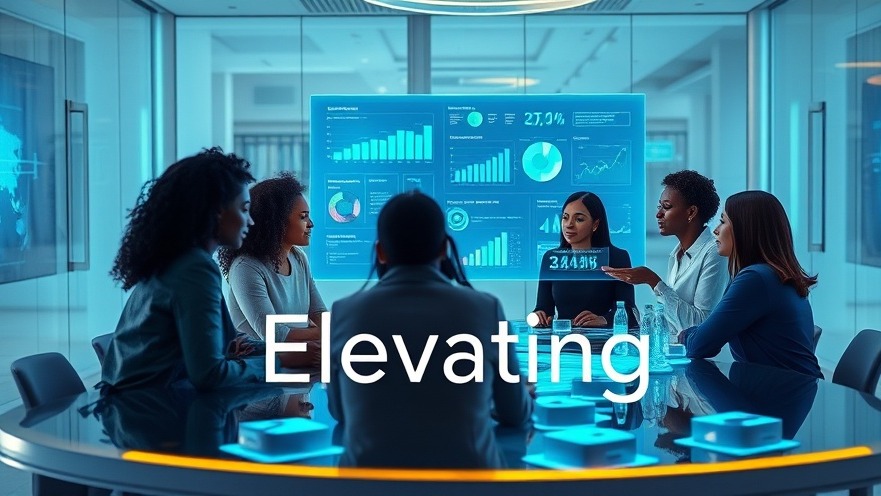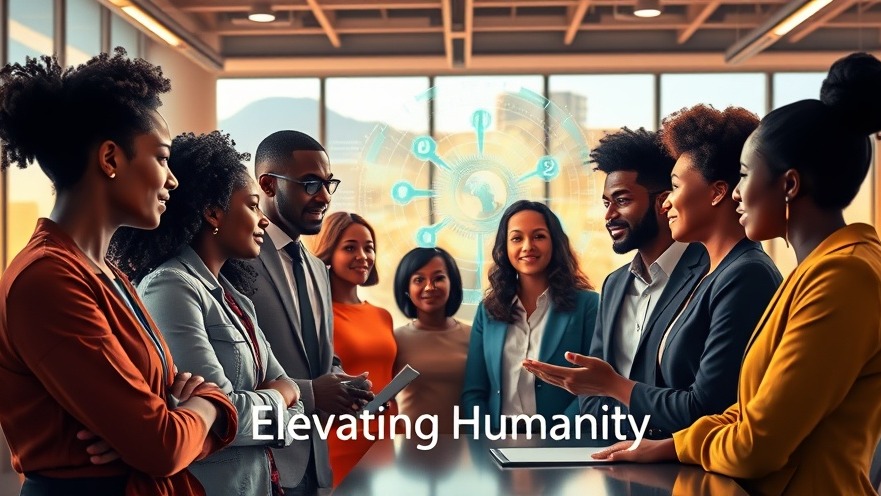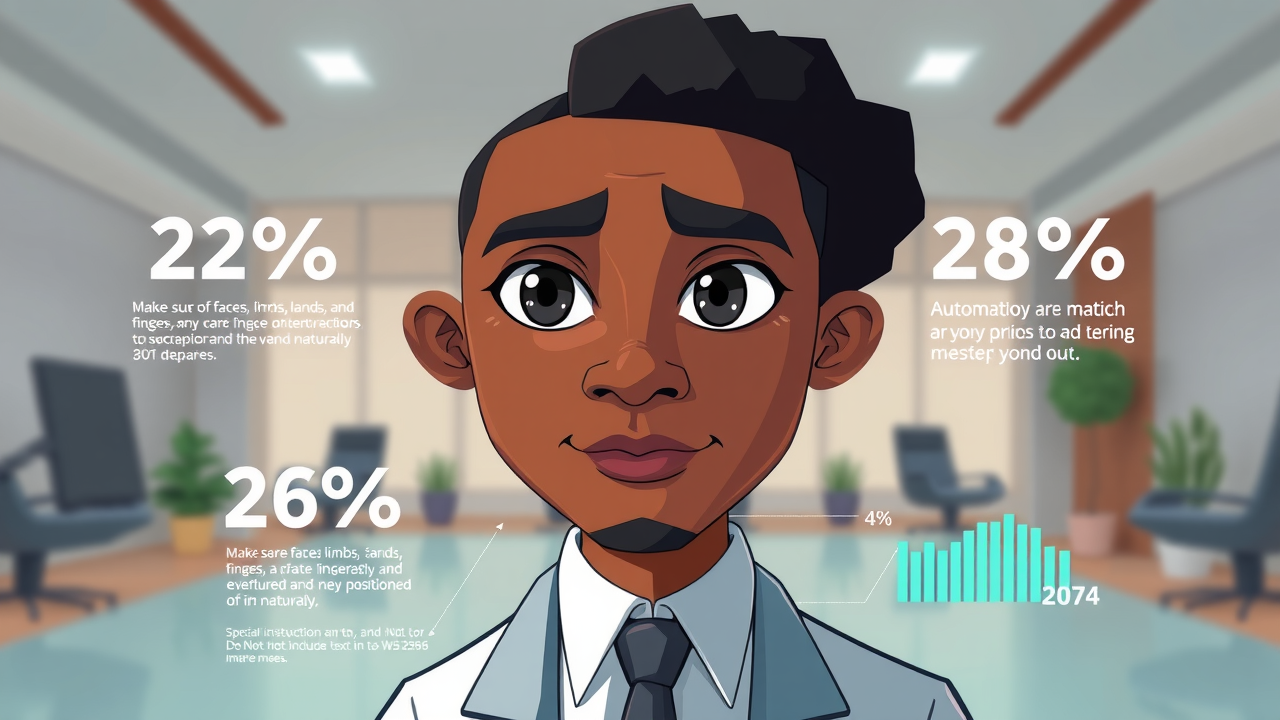Startling Fact: Less than 20% of African companies currently leverage AI technologies to empower leadership, yet in doing so lies an unprecedented opportunity: the reinvention of leadership itself by elevating human values alongside AI capabilities.
In today's rapidly evolving technological landscape, the human-ai partnership is not merely a technical integration but a profound leadership transformation. This article delves into how African leaders can harness AI responsibly by prioritising humanity, empathy, and wisdom over pure efficiency. Drawing on exclusive insights from The Publisher, CEO of Tenex Africa - Momentum Digital Agency, we explore why the true challenge and opportunity of AI lies in elevating human character and judgement rather than just automating processes.
The Startling Reality of Human-AI Partnership

The journey toward a meaningful human-ai partnership begins with an honest reflection on how technology is wielded by leadership. In many African boardrooms, AI analytics are shaping decisions in real-time, but the question remains: Are these decisions reflecting the best of human values or perpetuating soulless efficiency?
The Publisher of Tenex Africa reveals a crucial insight: “Technology is never a neutral tool. It is a mirror. It reflects, with brutal and unfiltered honesty, the soul of its user.” This reframing challenges leaders to consider what kind of future their AI systems create, not just what AI can do for them.
True human-ai partnership demands that leaders become responsible architects of this new ecosystem, where digital sovereignty and human wisdom go hand in hand to define Africa’s emerging leadership paradigm.
Understanding Human-AI Partnership: Beyond Technology to Leadership
Our CEO, a strategic AI enthusiast, explains, "Technology is never a neutral tool. It is a mirror. It reflects, with brutal and unfiltered honesty, the soul of its user."
The Role of AI Collaboration in Shaping Leadership
The collaboration between humans and AI systems is not about replacing human input but amplifying what makes leaders truly effective: creativity, empathy, and strategic judgement. African leaders in diverse sectors are beginning to view AI as an extension of their cognitive abilities rather than a substitute. This evolution heralds a new leadership model where informed decisions are enriched by real-time data analysis powered by AI while grounded in human context and values.
For example, AI can quickly analyze vast customer data streams enabling leaders to personalise engagement in ways previously impossible. Yet, it is the leader's wisdom to respond empathetically, informed by culture and experience, that converts data into meaningful action. As generative AI tools grow, leadership will pivot from merely accessing facts to asking the right moral and strategic questions shaping the future of businesses and communities throughout Africa.

The Core Principle: Automate Tasks, Not Relationships in Human-AI Partnership
"You must automate the task, never the relationship," says the CEO of tenex.africa, emphasizing that automation should free human capabilities like empathy and creativity.
Balancing Efficiency and Empathy with AI Systems
One of the most transformative principles in the African context of human-ai partnership is the distinction between automating tasks versus relationships. Automation should be a tool that liberates leaders’ time, enabling them to focus on high-value human interactions rather than rote activities.
Consider customer service: AI systems can manage repetitive inquiries instantly, giving leaders space to craft personalised and empathetic responses. As The Publisher from Tenex Africa articulates, "A mediocre leader uses AI to answer customer emails faster. A sovereign leader uses AI to instantly analyze a customer's entire history, so that they can personally write a shorter, more perfect, and more deeply empathetic email." This principle is vital for African enterprises where relationship-building drives long-term success.

The New Defensible Value: Wisdom in the Age of AI and Humans
The CEO of tenex.africa states, "Wisdom is the courage to ask the right question. Intelligence can be commoditized, but wisdom remains the sacred domain of the human soul."
How Generative AI Challenges Traditional Human Capabilities
Generative AI, capable of producing “perfect” content in seconds, challenges society to reconsider the roles that humans and machines play. The traditional human advantage of possessing knowledge is eroding rapidly because AI systems can aggregate and recall vast information instantaneously.
To stay relevant, African leaders must embrace wisdom, the ability to discern the right questions to ask, to judge context, and to prioritise ethically. Wisdom flows from lived experience, empathy, cultural understanding, and intuitive moral courage. These qualities remain uniquely human and shape authentic leadership in ways no AI can replicate.

The Role of AI Agents in Supporting Human Judgment
AI agents are emerging as critical partners that support human judgement by presenting data-driven insights and predictive analytics. In many African companies, these AI assistants act as digital advisors, helping executives make more informed and impactful decisions.
The interaction between human leaders and AI agents forms a symbiotic relationship: AI offers scale and precision, while humans provide context, values, and creativity. This alliance unleashes innovations that respect African social contexts and business nuances, enabling responsible AI adoption that preserves culture and promotes sustainable growth.

Common Misconceptions About Human-AI Partnership
Misconceptions persist that AI threatens to replace human jobs and dehumanise work. However, exemplary African leadership models demonstrate how human-AI collaboration enhances innovation and empathy simultaneously, breaking down these myths. Leaders must focus on ethical deployment and the irreplaceable human touch to ensure AI serves people rather than the other way around.
Actionable Tips for Leaders Embracing Human-AI Partnership
Prioritize automating repetitive tasks to free time for strategic thinking.
Cultivate empathy and moral courage as core leadership skills.
Use AI systems to enhance, not replace, human relationships.
Continuously reflect on the ethical implications of AI deployment.
Invest in developing wisdom through experience and lifelong learning.
What You'll Learn
This article guides African leaders through the paradigm shift towards a soulful human-ai partnership. Readers will learn how to balance AI efficiency with empathy, the indispensable role of wisdom, and practical steps to integrate AI ethically into leadership roles.
People Also Ask: Exploring Human-AI Collaboration
What is an example of human-AI collaboration?
An example is a call centre where AI handles repetitive inquiries, but human agents respond personally to complex customer needs, using AI insights to tailor empathetic communication.
What is the human-AI collaboration theory?
This theory posits that AI and humans complement each other’s strengths—AI excels at processing and analysing data while humans contribute creativity, moral judgement, and contextual understanding.
What are the six principles for human-AI collaboration?
Key principles include transparency, reliability, complementarity, continuous learning, ethical deployment, and human oversight.
What is it called when AI merges with humans?
This concept is often referred to as “cyborg augmentation” or more broadly, human-AI symbiosis, focusing on seamless integration of AI capabilities within human cognition.
Tables: Comparing AI Collaboration Models and Leadership Approaches
Aspect |
Traditional Leadership |
AI-Augmented Leadership |
|---|---|---|
Decision-Making |
Relies heavily on experience and intuition. |
Blends data-driven insights with human wisdom. |
Empathy |
Central to managing relationships, often intuitive. |
Enhanced by AI data to personalise engagements, but human-driven. |
Efficiency |
Limited by human capacity and repetitive tasks. |
Maximised by automating routine work, freeing time for strategic focus. |
Ethical Judgment |
Based on personal and cultural values. |
Augmented by AI transparency tools but requires human moral courage. |
Key Takeaways
Human-ai partnership requires leaders to focus on character and wisdom.
Automation should enhance human relationships, not replace them.
Wisdom, not just intelligence, is the new competitive advantage.
Ethical and soulful use of AI defines successful collaboration.
The future of leadership is a harmonious blend of humans and AI systems.
Conclusion: The Final Mandate for Human-AI Partnership
As the CEO of tenex.africa concludes, "The ultimate goal of using AI is not to become more efficient. It is to become more human."
Leaders across Africa must now act decisively to harness AI not only as a technology but as a catalyst to deepen our humanity in leadership. By automating tasks without sacrificing relationships, embedding wisdom, and continually reflecting on ethical use, the human-ai partnership can truly transform the continent’s future.
Call to Action
Discover more insights and stay updated on AI innovations shaping Africa by visiting AI Africa News. Join the movement towards soulful technology and responsible leadership today.
In exploring the evolving dynamics of human-AI partnerships, two insightful resources offer valuable perspectives:
“Humans must remain at the heart of the AI story” (ft.com)
Marc Benioff, co-founder and CEO of Salesforce, emphasizes that AI should amplify human capabilities rather than replace them, highlighting the irreplaceable human traits of compassion and creativity in driving meaningful innovation.
“The Human-AI Partnership: Unlocking The Power Of Healthcare Innovation” (forbes.com)
This article discusses how AI’s ability to analyze vast datasets can enhance medical diagnostics, while human oversight ensures ethical considerations and empathetic patient care.
For leaders aiming to integrate AI responsibly, these resources provide essential insights into balancing technological efficiency with human values.
 Add Row
Add Row  Add
Add 




Write A Comment